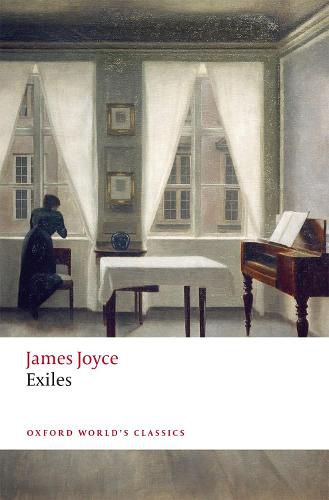Readings Newsletter
Become a Readings Member to make your shopping experience even easier.
Sign in or sign up for free!
You’re not far away from qualifying for FREE standard shipping within Australia
You’ve qualified for FREE standard shipping within Australia
The cart is loading…






‘That is my fear. That I stand between her and any moments of life that should be hers…'Set against the backdrop of the Home Rule Crisis of 1912, Exiles is James Joyce’s only surviving play. It tells the story of writer Richard Rowan and his common-law wife Bertha, characters drawn from Joyce’s own life with Nora Barnacle. After a decade of absence from Dublin, Richard and Bertha have returned home from Rome, still unmarried, with their young son Archie. Richard hopes that he will be greeted as a returning genius and rewarded with a comfortable university position. But this aspiration ends up taking a back seat to the erotic crisis that is unleashed by the couple’s return to the place where they first met, and their encounters with two old flames and friends.In this play, Joyce revisits his own agonizing feelings of jealousy that were precipitated by similar trips home to Dublin.In the introduction and notes, Keri Walsh provides a comprehensive look issues of gender, sexuality, and performance as well as considering the nationalist and sectarian contexts of Dublin in 1912, the year of the play’s setting.
$9.00 standard shipping within Australia
FREE standard shipping within Australia for orders over $100.00
Express & International shipping calculated at checkout
‘That is my fear. That I stand between her and any moments of life that should be hers…'Set against the backdrop of the Home Rule Crisis of 1912, Exiles is James Joyce’s only surviving play. It tells the story of writer Richard Rowan and his common-law wife Bertha, characters drawn from Joyce’s own life with Nora Barnacle. After a decade of absence from Dublin, Richard and Bertha have returned home from Rome, still unmarried, with their young son Archie. Richard hopes that he will be greeted as a returning genius and rewarded with a comfortable university position. But this aspiration ends up taking a back seat to the erotic crisis that is unleashed by the couple’s return to the place where they first met, and their encounters with two old flames and friends.In this play, Joyce revisits his own agonizing feelings of jealousy that were precipitated by similar trips home to Dublin.In the introduction and notes, Keri Walsh provides a comprehensive look issues of gender, sexuality, and performance as well as considering the nationalist and sectarian contexts of Dublin in 1912, the year of the play’s setting.